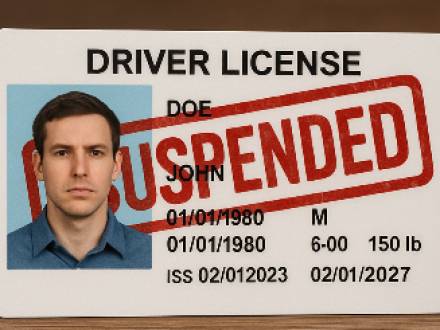Understanding Illinois House Bill 2658: Potential Changes to Restricted Driving Permits for DUI Convictions
 If you're facing a DUI charge in Illinois, staying informed about legislative changes can make a significant difference in protecting your driving privileges. One such development is Illinois House Bill 2658 (HB2658), which aims to amend the Illinois Vehicle Code to provide more flexible options for restricted driving permits (RDPs) and informal hearings for license suspensions or revocations. As a criminal defense and driver's license reinstatement attorney in Will County, Joliet, Illinois, I've seen how these laws directly impact clients' lives. In this blog post, we'll break down what HB2658 entails, its current status, and what it could mean for those dealing with DUI-related license issues. Whether you're searching for "Illinois restricted driving permit DUI" or "driver's license reinstatement after DUI," understanding this bill is crucial.
If you're facing a DUI charge in Illinois, staying informed about legislative changes can make a significant difference in protecting your driving privileges. One such development is Illinois House Bill 2658 (HB2658), which aims to amend the Illinois Vehicle Code to provide more flexible options for restricted driving permits (RDPs) and informal hearings for license suspensions or revocations. As a criminal defense and driver's license reinstatement attorney in Will County, Joliet, Illinois, I've seen how these laws directly impact clients' lives. In this blog post, we'll break down what HB2658 entails, its current status, and what it could mean for those dealing with DUI-related license issues. Whether you're searching for "Illinois restricted driving permit DUI" or "driver's license reinstatement after DUI," understanding this bill is crucial.
What is Illinois House Bill 2658?
HB2658, introduced in the 104th General Assembly, proposes several key amendments to the Illinois Vehicle Code to ease the process for individuals with suspended, revoked, or denied licenses, particularly those stemming from DUI convictions. The bill allows people to request informal hearings at a Secretary of State driver services facility for issues related to licenses, permits, registrations, or titles. More notably, it expands eligibility for restricted driving permits. For convictions involving alcohol or drugs as an element of the offense, the Secretary of State could issue an RDP allowing driving up to 6 days a week, for 12 hours per day, within a 200-mile radius of the driver's residence—for any legal purpose, provided an ignition interlock device (IID) is installed.
Additionally, the bill clarifies that convictions can include similar out-of-state offenses or those on military installations. It also introduces an employment exception, permitting drivers to operate employer-owned vehicles without an IID solely for work purposes. Amendments to the bill, such as House Committee Amendment No. 1 and House Floor Amendment No. 2, add provisions for crediting time served on a monitoring device driving permit (MDDP) toward mandatory IID requirements, provided there are no violations. These changes aim to balance public safety with practical needs, helping individuals maintain employment and daily responsibilities while serving penalties.
Current Status of HB2658
As of July 10, 2025, HB2658 remains pending in the Illinois Senate, specifically referred to the Assignments Committee since April 14, 2025. The bill passed the House unanimously on April 7, 2025, with a vote of 104-0-0, after being sponsored by Rep. Ann M. Williams and amended twice for clarity and additional provisions. Chief Senate Sponsor Sen. Ram Villivalam added his support upon its arrival in the Senate. However, with the spring legislative session adjourning on May 31, 2025, no further action has been taken, leaving it in limbo until the General Assembly reconvenes—potentially in a veto session or the 2026 session.
This status means HB2658 has not yet become law, but it's still active in the biennial 104th General Assembly (2025-2026). For the latest updates on "Illinois HB2658 status," I recommend checking official sources like the Illinois General Assembly website or LegiScan. If it passes, it could take effect immediately or on a specified date, but until then, current laws on RDPs and license reinstatements apply.
How HB2658 Could Impact DUI Cases in Illinois
If enacted, HB2658 would offer substantial relief for those convicted of DUI or similar offenses, making it easier to regain limited driving privileges without the strict work-or-hardship-only restrictions under current law. For example, the expanded RDP options—6 days a week, 12 hours daily, within 200 miles—could help parents transport children, attend medical appointments, or handle errands, all while requiring an IID to prevent impaired driving. This is particularly relevant in areas like Will County, where public transportation is limited, and losing a license can devastate livelihoods.
However, navigating these processes isn't simple. Informal hearings, MDDP applications, and IID compliance involve paperwork, fees, and potential denials if not handled correctly. Mistakes can lead to prolonged suspensions or additional penalties. As a former Will County prosecutor with over 20 years of experience, I've successfully helped clients secure RDPs, reinstate licenses, and defend against DUI charges. Bills like this highlight the evolving nature of Illinois DUI laws, but they also underscore the need for expert guidance to avoid pitfalls.
Why Consult a Will County DUI Lawyer on License Reinstatement
Even with potential changes from HB2658, DUI convictions carry severe consequences, including mandatory revocations, fines, and jail time. If you're dealing with a first-time DUI, aggravated DUI, or multiple offenses in Joliet or Will County, professional representation is essential. At the Law Offices of Jack L. Zaremba, we specialize in aggressive defense strategies, from challenging evidence to negotiating plea deals that minimize license impacts.
Don't wait for legislative changes—act now to protect your rights. Visit Zaremba Law for more on DUI defense or to learn about license reinstatement processes. Contact us today at (815) 740-4025 for a free consultation. Whether HB2658 passes or not, we're here to fight for your future.

















